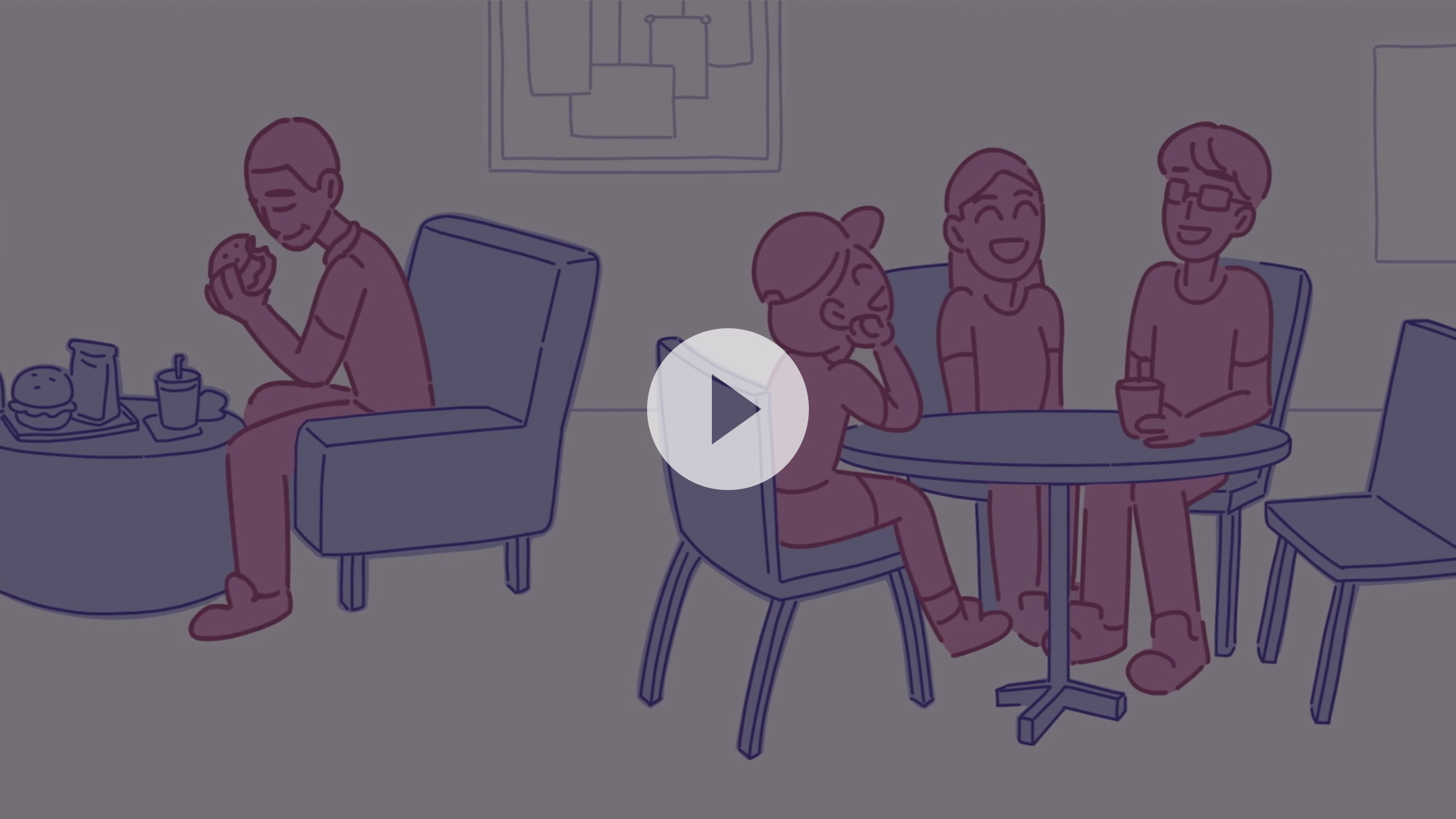College Planning
How to Live Your Best First Year of College Life
When you’re starting college, it’s important to learn how to balance your schoolwork, part-time job, social life, and other responsibilities.
How do I balance schoolwork and a part-time job?
Like many students, you may be studying full time and working part time. Before applying for a part-time job, ask yourself:
- Am I ready to balance school and work?
- What type of job will work best with my schedule, skills, and personality?
- How will I manage my time?
When you start a job, follow these tips:
- If possible, ease yourself into your new schedule—don’t commit to working a lot of hours immediately
- Plan your class, work, and extracurricular schedules to avoid time conflicts
- Use your time efficiently
- If there’s downtime during your shift, depending on the job, ask your boss if it’s possible to get some schoolwork done during slow periods
Working part-time can help you explore different career options and gain real-life experience. Read about the types of part-time jobs students like you have in college.
How do I make sure I don’t get overwhelmed?
Time management is key—one way to take control of your time is to make a to-do list every day.
- Write your list in a notebook or on sticky notes and keep it with you
- Save the list on your phone or laptop
- Download free apps to help prioritize tasks
- Once you get in the habit of creating a to-do list, you can also create a list of long-term goals:
“At the start of my college career, I created a list of long-term goals that I wanted to achieve by the end of college. By constantly referring to those goals, I am motivated to make the right choices to achieve those goals. It is also essential for students to develop time-management skills when completing schoolwork. Completing schoolwork as early as possible allows students to leave very little room to feel overwhelmed, thus keeping them motivated.”
– Amanda, 2018–2019 Youth Advisory Council
If you get overwhelmed, press pause for a minute to regroup, recharge, and figure out your next steps. Watch this video to get tips from the “Half of Us” campaign, a collaboration between mtvU and The Jed Foundation:
How do I handle roommate conflict?
You may be required to live on campus with a roommate your first year, and this may be your first time living away from home and sharing a space with someone other than your family. But this new experience doesn’t have to be stressful.
A few things you can do before moving into your dorm:
- Contact your roommate over the summer and get to know each other’s living habits a little
- Ask your roommate what appliances they’d like to share:
- TV
- Fridge
- Microwave
- Coordinating how you want to decorate your space can also be a way to bond with your roommate
You can expect company, support, and new perspectives (and lifestyle differences and lack of privacy) when you live with a roommate. Use these strategies to make sure you’re communicating openly with your roommate and creating a positive environment:
- Make some initial rules around situations that are likely to come up:
- If one of you has an earlier class, how should you handle turning on lights in the morning?
- If one of you likes to stay up late, how should you adjust the volume of music or TV?
- You and your roommate won’t agree on everything, so it’s important to compromise:
- If one of you is neater than the other, try to keep shared areas free of clutter
- You’ll likely be sharing the same space with your roommate for at least a year, so continue to communicate, compromise, and respect each other
- Follow these roommate communication tips from “Set to Go,” a Jed Foundation program, to help you start a conversation
When you experience conflict or frustration, press pause by counting down to 10 and let yourself cool off before you make a decision. Watch this video for tips from Half of Us:
Hear college students talk about what surprised them about dorm life, their favorite thing about it, and the benefits of living in a dorm.
How do I navigate college life outside the classroom?
Each college has a different social scene—it’s important to keep this in mind when deciding which colleges are a good fit for you.
Like high school, there are a lot of activities you can get involved in outside the classroom. You may find yourself pushing boundaries and trying something new. You may gain hands-on experiences or discover career choices you’ve never thought of. See what surprised these students about college life, and how college changed them.
You’ll get the opportunity to meet different people, make new friends, and find a community that makes you feel safe and at home.
Some say the social life in college is different from high school because it’s easier to meet people when everyone is new to the school. Others say living in a dorm is like a massive sleepover with all your friends.
When asked what they wish they’d done differently their first year, some college students say they should have gone beyond their comfort zone and interacted with students from different backgrounds outside of their classes.
When you find yourself in a situation where you’re anxious around other people, a good way to press pause is to remember a time when you felt confident and channel that positive energy. Check out these tips from Half of Us
Going to college is a big step toward your future, and it’s OK to take some time to find what’s best for you. And remember, there are many resources on campus to help you navigate your schedule, social life, and mental health. You’re not alone.
When transitioning to college, consider your life beyond the classroom and think about ways to stay healthy and emotionally fit. You can find more information on health and mental health services from Set to Go, a Jed Foundation program. Don’t be afraid to ask for help!
The Jed Foundation and Half of Us share stories and information that help teens and young adults understand emotional health issues. Reach out when you need more resources to deal with anxiety, stress, sadness, or anger.
Visit bigfuture.org for more free, comprehensive college planning resources.






